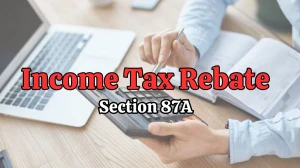
How to Avoid Capital Gains Tax on Real Estate?
To avoid capital gains tax on real estate, consider waiting at least a year before selling to qualify for long-term capital gains, utilize primary residence exclusions if applicable, roll profits into a new investment through a 1031 exchange.
Published Nov 01, 2023 | Updated Nov 01, 2023 | 📖 6 min read
What is Capital Gains Tax?
Capital gains taxes are levies imposed on real estate investors when they sell a property. These taxes are akin to the taxes individuals pay on their earned income. To compute capital gains, the Internal Revenue Service (IRS) looks at the profit generated from the sale, essentially taxing the discrepancy between the property's purchase price and the amount received upon its sale. In simpler terms, if you sell a property for more than what you initially paid, you'll owe taxes on the profit made during the transaction.
Capital gains taxes are a crucial part of the real estate investment landscape, and understanding how they work is essential for investors to navigate the tax implications of their property transactions. By being aware of the tax rules and potential strategies, investors can make informed decisions about buying and selling real estate to optimize their financial outcomes.
How to Avoid Capital Gains Tax on Real Estate?
Federal capital gains taxes can significantly impact your real estate profits, potentially reaching up to 37%. To avoid or reduce capital gains tax on real estate, you can employ various strategies.
These strategies encompass waiting at least a year before selling your property to qualify for long-term capital gains treatment, utilizing primary residence exclusions, reinvesting your profits in a new investment through a 1031 exchange, itemizing your expenses, selecting properties in designated opportunity zones, and timing the property sale during a period of lower income.
By understanding and employing these methods, you can effectively manage your real estate transactions and potentially mitigate the impact of capital gains taxes on your earnings.
Pause before selling your property
Taking a pause before selling your property can be a strategic move in managing your tax liabilities. When you buy and sell a property within a year, it's categorized as a short-term capital gain, which often results in higher tax rates.
By waiting for at least a year before selling, provided you can handle the ongoing expenses, you can potentially qualify for long-term capital gains treatment. This distinction can lead to reduced tax obligations, making it a financially prudent decision for property sellers.
Visit MarketsHost for your Taxes-related questions. Our platform provides essential information and insights for informed decisions.
Make use of the primary residence exclusions
You can benefit from primary residence exclusions, which are provided by all states as a way to reduce your tax burden when selling your main home. To be eligible, you typically need to own and live in the property for a specific duration.
If you've made improvements that enhance the property's value while residing there, you might qualify for a substantial exemption, such as $250,000 for single individuals or $500,000 for married couples. Leveraging these exclusions can significantly lower your tax liability when selling your primary residence, offering potential financial advantages for homeowners.
Reinvest your earnings into a new investment
One strategy to consider is rolling your profits into a new investment through a 1031 exchange. This option allows you to defer paying capital gains taxes by reinvesting your earnings in a similar type of investment.
It's important to note that the requirements for a 1031 exchange can be more complex compared to other methods, but it can be a valuable option, especially if you're selling real estate at a loss. By using a 1031 exchange, you can potentially minimize the immediate tax impact of your real estate sale while diversifying your investments.
Detail your expenses in an itemized manner
A useful strategy to consider is itemizing your expenses in a detailed manner, which can encompass various costs like construction, equipment, repairs, and expenses related to the sale.
By doing this, you can potentially reduce your tax liability when it comes to capital gains, as you'll be taxed on your actual profits rather than the gross sale amount. This method allows you to account for the expenses incurred during your real estate transaction, potentially lowering the amount subject to capital gains tax and ultimately preserving more of your earnings.
Strategically consider your purchase location
One strategic approach is to carefully consider the location of your property purchase. Opting for properties in designated opportunity zones can be beneficial for managing capital gains expenses.
These areas are typically in need of revitalization, and by investing in them, you can contribute to the community's improvement while also potentially lowering your capital gains tax. It's a win-win situation where you can make a positive impact and reduce your overall expenses, making it a strategic choice for real estate investors.
Select your sale date thoughtfully
A crucial strategy is to be considerate when choosing the date to sell your property. Timing your property sale during a period when your income is at its lowest can be advantageous in avoiding capital gains taxes.
The IRS may impose as little as 0% tax on your capital gains if your income falls below the threshold of $80,000, making it a smart approach to minimize your tax liabilities while optimizing your real estate transaction.
When Do You Pay Capital Gains Tax on Real Estate?
Capital gains tax is only due when you sell an asset, like real estate. For instance, if you purchased your home two years ago and it has gone up in value by $10,000, you won't owe the tax until you decide to sell the property. In this case, the initial purchase price of your home serves as the cost basis for the property, and the tax is triggered by the sale, allowing you to defer the tax until you decide to part with the asset.
Who Pays Capital Gains Taxes?
Understanding who is responsible for paying capital gains taxes and the circumstances that trigger these tax obligations is essential for individuals engaged in asset sales, particularly in the realm of real estate.
- Individuals are required to pay capital gains taxes when selling an asset, as per IRS regulations.
- Capital gains taxes must be paid if the property sold is a second home, including investment, vacation, or rental properties.
- If you've owned the property for less than two years within a five-year period, capital gains taxes are typically applicable.
- The tax liability also arises if you've resided in the property for less than two years in the five years before selling it.
- If you've already claimed a tax exemption on another property within the last two years, you may be subject to capital gains taxes.
- Acquiring a property through a 1031 exchange can also trigger capital gains tax obligations.
- The specific tax rate depends on factors such as your income tax bracket, marital status, duration of property ownership, and whether the property served as your primary or secondary residence.
- Exemptions are available for the sale of a primary residence, but generally, you can claim this exemption only once every two years.
How to Avoid Capital Gains Tax on Real Estate - FAQs
1. What is the primary residence exclusion for capital gains tax on real estate?
The primary residence exclusion allows you to exclude a portion of your capital gains when selling your primary home, provided you meet specific residency requirements.
2. How does a 1031 exchange work to defer capital gains tax?
A 1031 exchange allows you to reinvest the proceeds from one property sale into another similar property, deferring capital gains tax until a later sale.
3. Can itemized expenses be deducted to reduce capital gains tax on real estate?
Yes, itemizing expenses like property improvements, repairs, and transaction costs can lower the taxable gains when selling real estate.
4. What are opportunity zones in relation to capital gains tax on real estate?
Opportunity zones are designated areas requiring redevelopment, and investing in real estate within these zones can potentially reduce your capital gains tax liability.
5. Are there specific guidelines for timing real estate sales to minimize capital gains tax?
Timing the sale during periods of lower income can lead to a reduced capital gains tax rate, as the IRS may charge lower or zero tax on gains if your income falls below certain thresholds.




